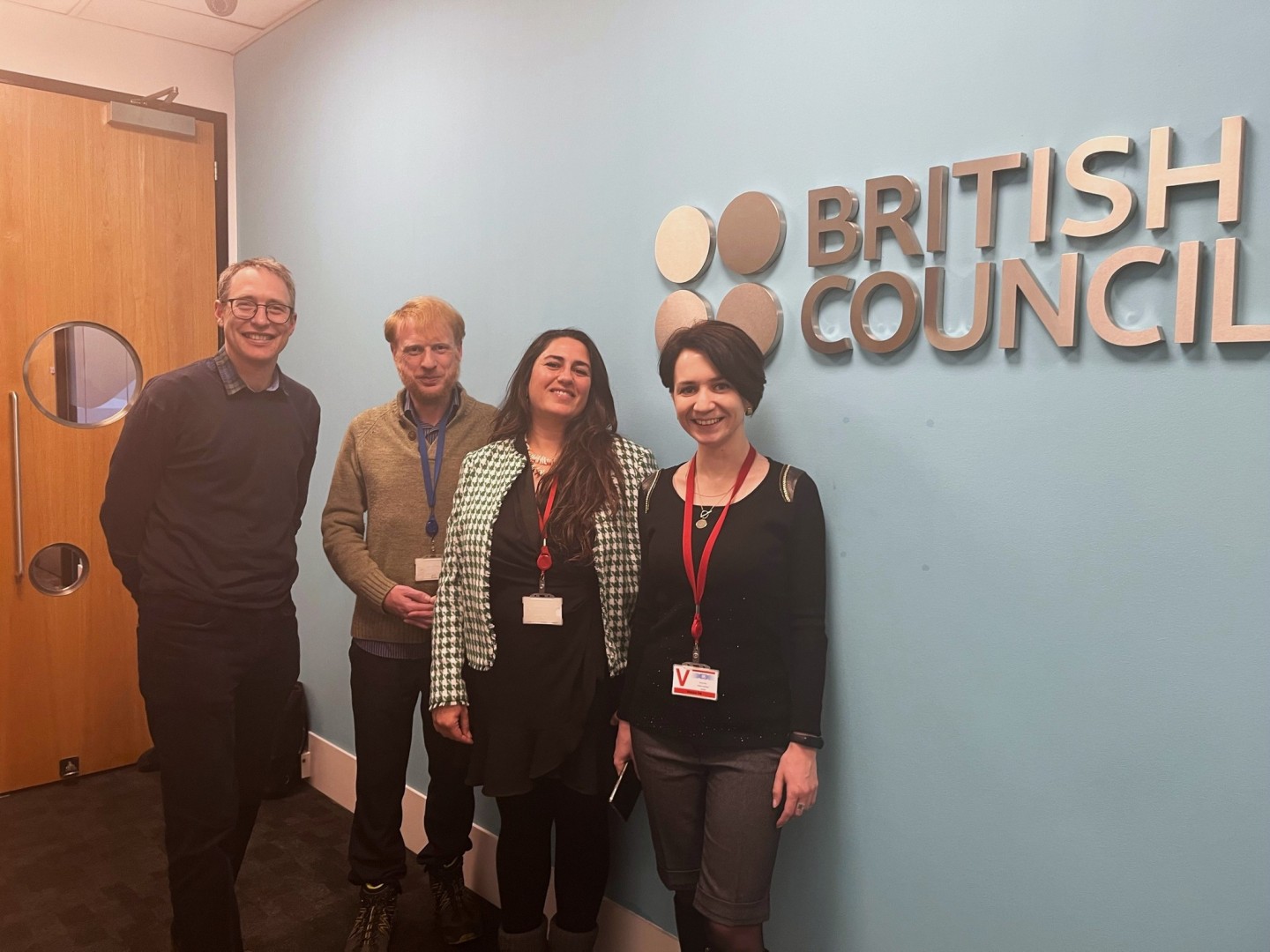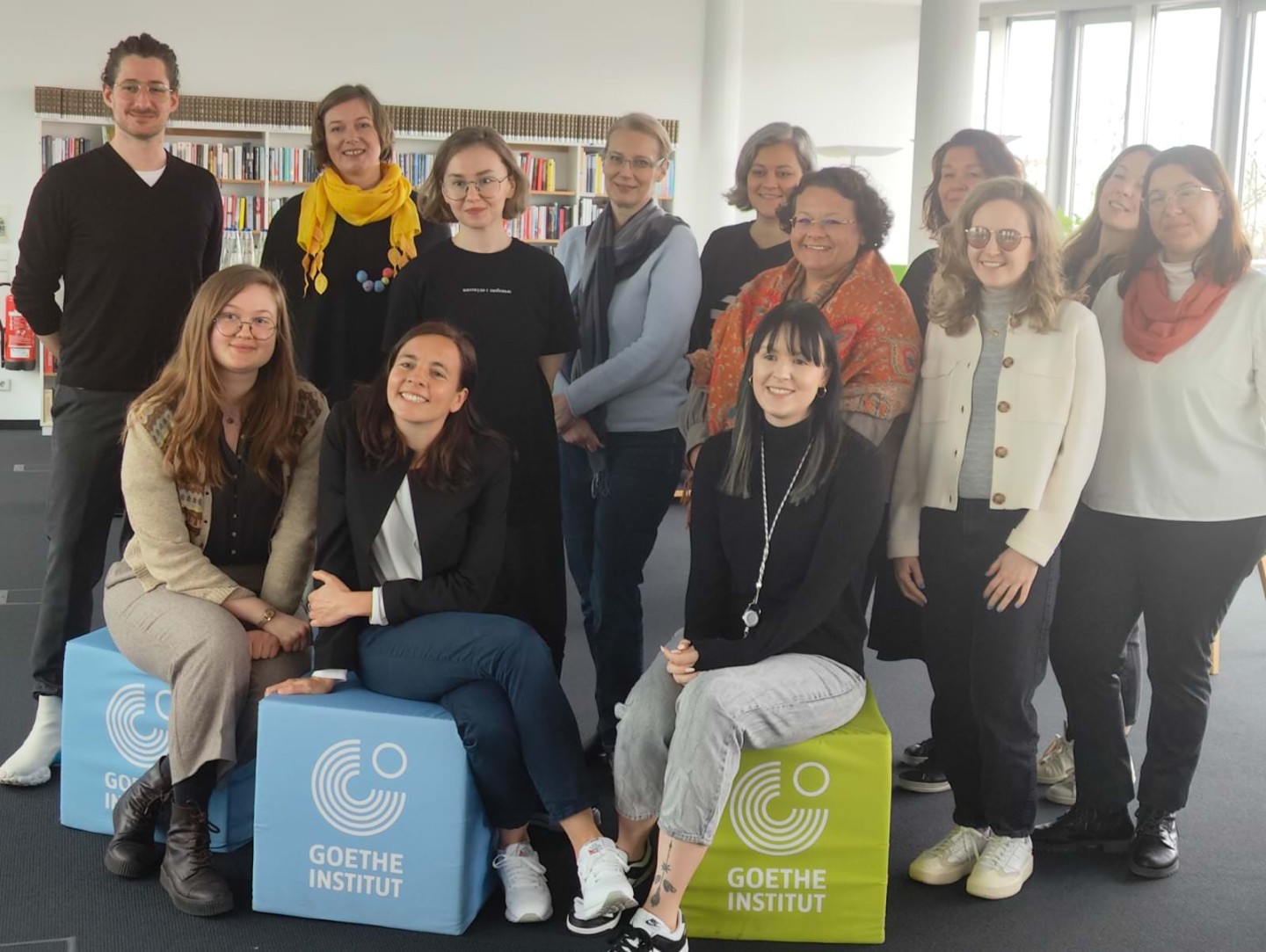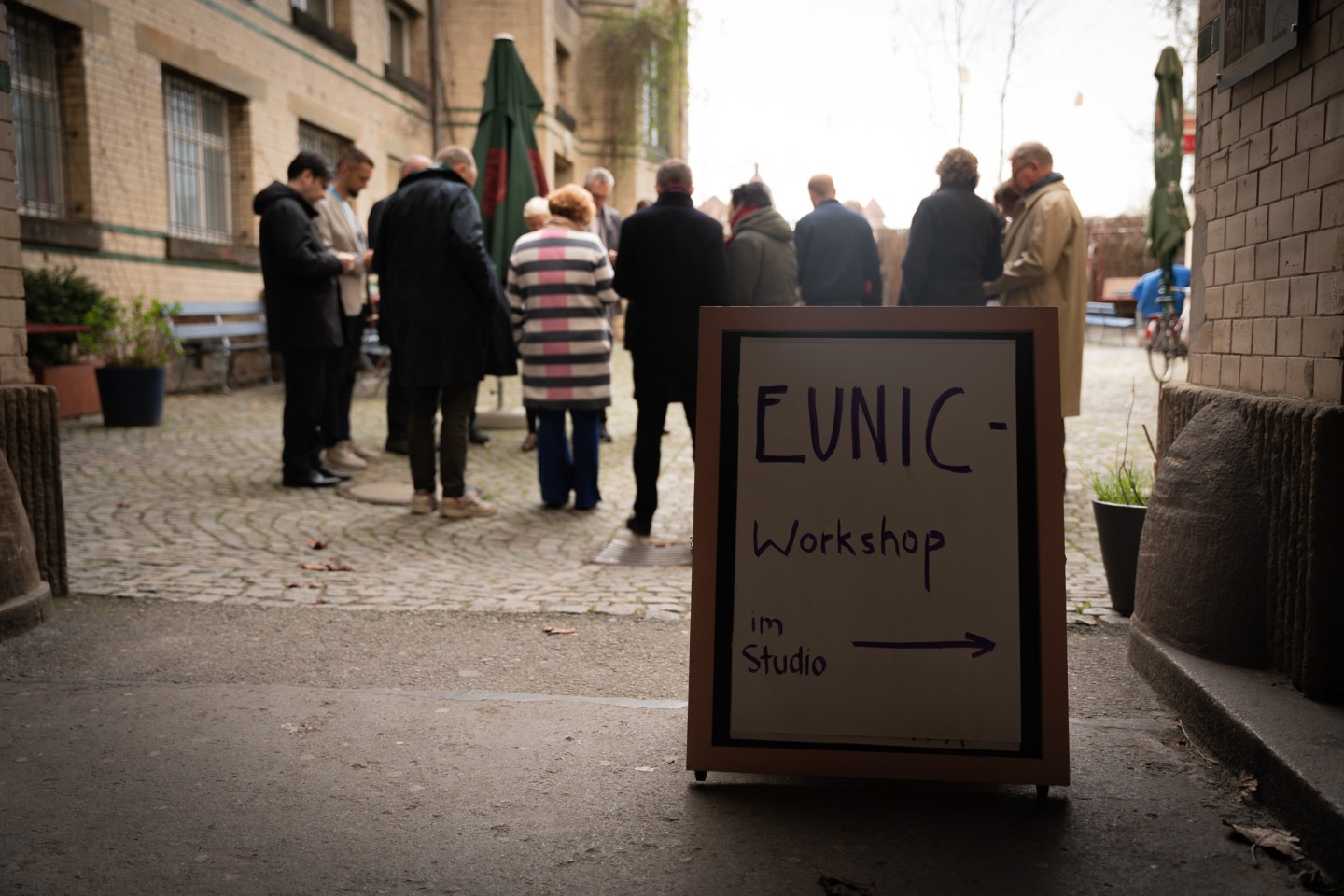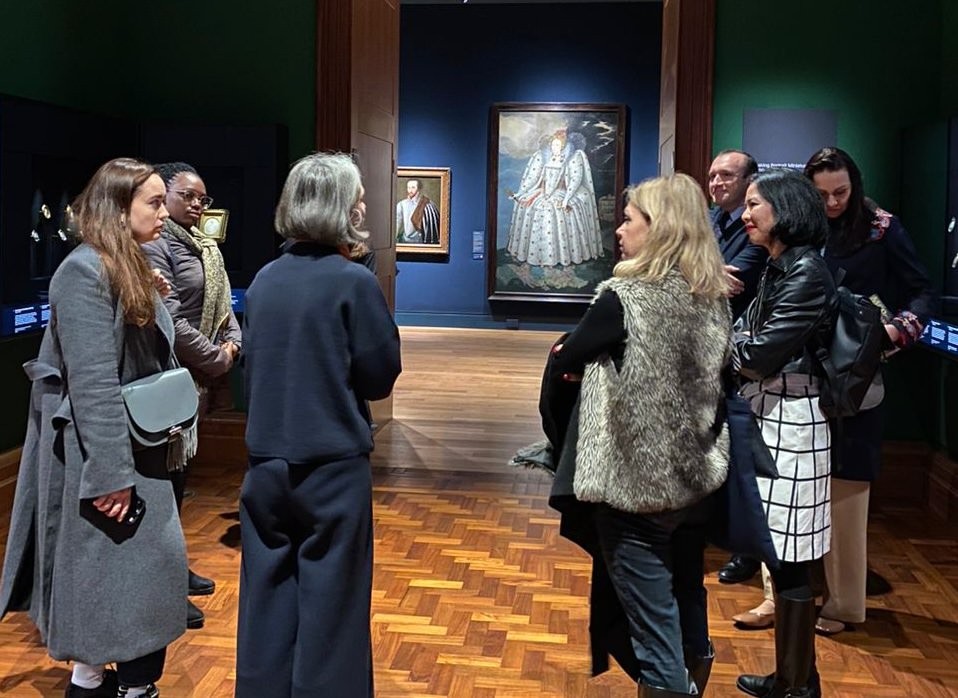
Mobility Scheme visit to the EUNIC office in Brussels
In April 2023, the EUNIC office in Brussels welcomed 9 EUNIC member colleagues from across the network in the framework of the EUNIC Mobility Scheme. The visit focused on working within a network (getting to know the day-to-day work of the colleagues, the organisational structure of EUNIC, the management of clusters) as well as the advocacy for cultural relations and the partnership with the European institutions and other cultural actors. Read the blog post to get an insight from participants about the learnings of the visit!

Thom Louis, Deputy Head of the Chief Executive and Chairman’s Office, British Council (Edinburgh)
What was your main take away about macro developments in regard to cultural relations and how EUNIC advocates for our work?
Firstly, cultural relations remains an important aspect of European diplomacy, and is recognised broadly by the EU institutions. EUNIC does much to present conceptual clarity of our global work and advocates for that where it matters.
Our legitimacy as cultural relations organisations remains grounded in the mutual connections that we build with civil society around the world. EUNIC can help us to translate that simple fact into effective engagement and advocacy for our field.
And finally, advocacy around cultural relations will be best presented through its role in the big questions. EUNIC provides a way for us to exchange on how we contribute and approach these collectively, whether that be on climate change, artists at risk, mobility or the achievement of the UN Sustainable Development Goals.
Mathias Rambaud, Attaché for books and ideas, EUNIC London co-President, French Ministry for Europe and Foreign Affairs (London)
What was your main learning about EUNIC’s high level relationship with the EU and what will you take back to the cluster?
During the EUNIC Mobility Scheme in Brussels, I was very positively surprised by the level of interaction and exchange between the EUNIC Global team and the EU institutions staff. Honestly I didn't expect such a high quality engagment. I guess that in less that 20 years of existence, filled with amazing accomplishments and projects, EUNIC has definitely earned their trust.
I think the European Commission and the European Parliament realize how much of an asset EUNIC is in terms of presence on the field, bottom-up approach and practitioner perspective. And this is thanks to its unique network of clusters. What's wonderful about EUNIC is once you understand that what you thought was a side aspect of your national agenda (all these monthly meetings with your European colleagues trying to work something out) can actually become a core activity, and one of the best, then you can fully grasp the importance of multilateralism. It gives the very principle of cultural relations its fullest meaning.
Kamilė Čelutkaitė, Head of Creative Europe Desk, Lithuanian Culture Institute (Vilnius)
What were the main take aways from the visit for your context at home in Lithuania? What were new elements you learned about the EU as a Creative Europe focal point?
The Mobility Scheme at EUNIC Global Office stimulated me to think more structurally on what institutions in Lithuania implement international cultural relations, how the Lithuanian Culture Institute is situated in this process, and whether in Lithuania these relations are implemented in the paradigm of this new concept pf “international cultural relations” and “fair mutual collaboration” or rather in the paradigm of “cultural diplomacy”.
As Creative Europe Focal Point I found it extremely useful to meet the representatives and players of EU cultural policy working on different levels. It was enlightening to hear about policy advocacy strategies from representatives of IETM and Culture Action Europe as well as how European Commission, European Council and European Parliament interact among each other when it comes to cultural policymaking and policy implementing. It was also useful to understand more specifically how research could affect cultural policymaking in the case of KEA European Affairs whose director I met during the individual meeting slot. In short, the visit to EUNIC Global Office in Brussels provided me with an excellent, well-rounded, practice-based approach to the specificities of the EU cultural policymaking, and this knowledge will certainly help me in my role as both Head of Creative Europe Desk Lithuania and Lithuanian Culture Institute Focal Point.









